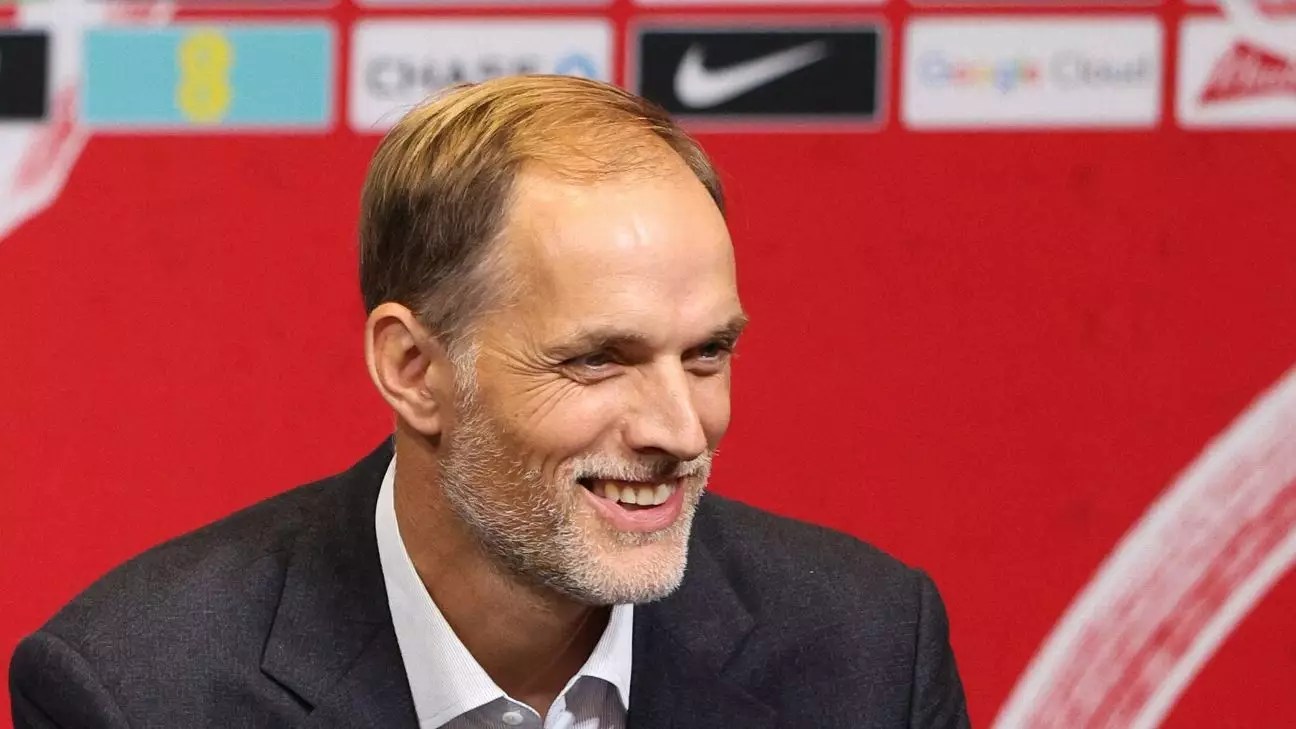In a significant move for English football, Thomas Tuchel has taken the reins as the head coach of the national team. Following the tenure of Gareth Southgate, Tuchel’s appointment signifies a bold step into uncharted territory, not just for him, but for the team and its supporters. With an ambitious vision for the 2026 World Cup, Tuchel acknowledges the skepticism surrounding his leadership, yet expresses a firm determination to transform that skepticism into belief by securing a coveted medal for the three lions.
Tuchel’s background is impressive, with a track record that includes major titles at some of Europe’s leading clubs such as Borussia Dortmund, Paris Saint-Germain, Chelsea, and Bayern Munich. However, his managerial career has often been characterized by short tenures—a trend he is keen to alter in his new role. The 51-year-old German coach has committed to an 18-month contract, which he views as a framework in which he can work to build a competitive squad while also gauging his long-term compatibility with the national team.
Taking the helm of a national team inherently differs from managing a club, particularly concerning player interaction and daily training routines. Tuchel outlined the transition he must undergo from the club-level environment—where he engaged with teams on a daily basis—to the national setup, which demands a different approach due to fewer training sessions and interactions.
The complexity and unpredictability of international football present unique challenges as he seeks to unify a diverse group of players in preparation for World Cup qualifications. “This is something that can really excite me,” he notes, emphasizing his focus on delivering results in the upcoming challenges while forging a strong bond with the players.
While his decision-making process includes weighing the importance of maintaining player morale and communication, Tuchel’s unique take on leadership suggests that he sees himself not just as a coach but as a guiding force. He aims to cultivate an environment where players can thrive and feel valued—conditions that are critical for any team aspiring to achieve greatness on the world stage.
An intriguing aspect of Tuchel’s appointment is his perspective on national identity, particularly in the context of the traditional rivalry between England and Germany. As the first German coach to lead the England men’s team, Tuchel’s decision on whether to sing the national anthem has drawn intrigue. His respectful acknowledgment of the anthem’s emotional resonance reflects a deeper commitment to integrating into the culture of English football.
“I will always show my respect to my new role and the country,” he remarks, highlighting the balancing act he must perform—honoring his heritage while embracing his new responsibilities. His pride in representing England shows a willingness to absorb the ethos of the nation he now leads, fostering unity and respect among players and fans alike.
England’s recent history under Southgate featured commendable progress, with the team reaching the final stages of both the European Championships and the World Cup. Tuchel recognizes the foundation left behind, acknowledging the strength and consistency of this current squad. His vision seeks to build on this momentum, capitalizing on the players’ experiences from the Premier League—the strongest football league in the world.
“This group of players has proven themselves capable of competing at the highest level,” Tuchel asserts, suggesting that he aims to introduce tactics and principles from club football to elevate the national team further. He maintains a belief that luck, fitness, and favorable circumstances will also play essential roles in their ascension toward silverware.
The road to the 2026 World Cup will be arduous, but Tuchel’s clear focus on qualification and success indicates his intent to unify efforts toward a common goal. He aims for nothing less than the addition of a “second star” to England’s shirt—symbolizing the achievement of another World Cup victory after a long 58-year wait.
As he begins this new chapter, Tuchel’s philosophy involves open discussions about ambitions while simultaneously implementing practical strategies to ensure the team performs at its peak. With a blend of experience, respect, and an understanding of football dynamics, his leadership could usher in an exciting new era for English football.
Ultimately, as Thomas Tuchel settles into his role, the eyes of the football world will be watching keenly—hoping to witness the transition from uncertainty to success under his guidance. The challenge remains significant, but his willingness to engage passionately with both players and fans is a promising sign for English football’s future.


Leave a Reply